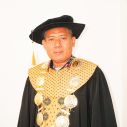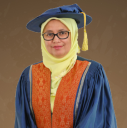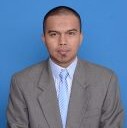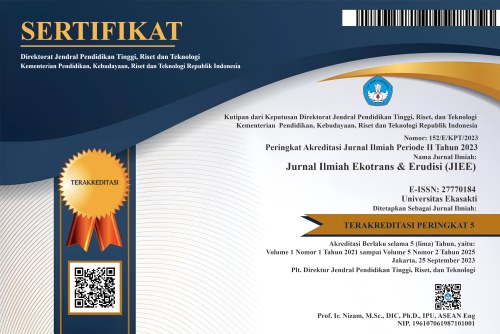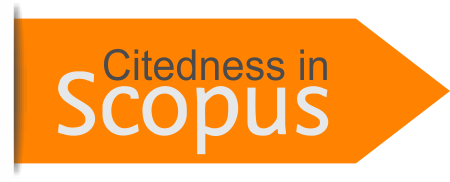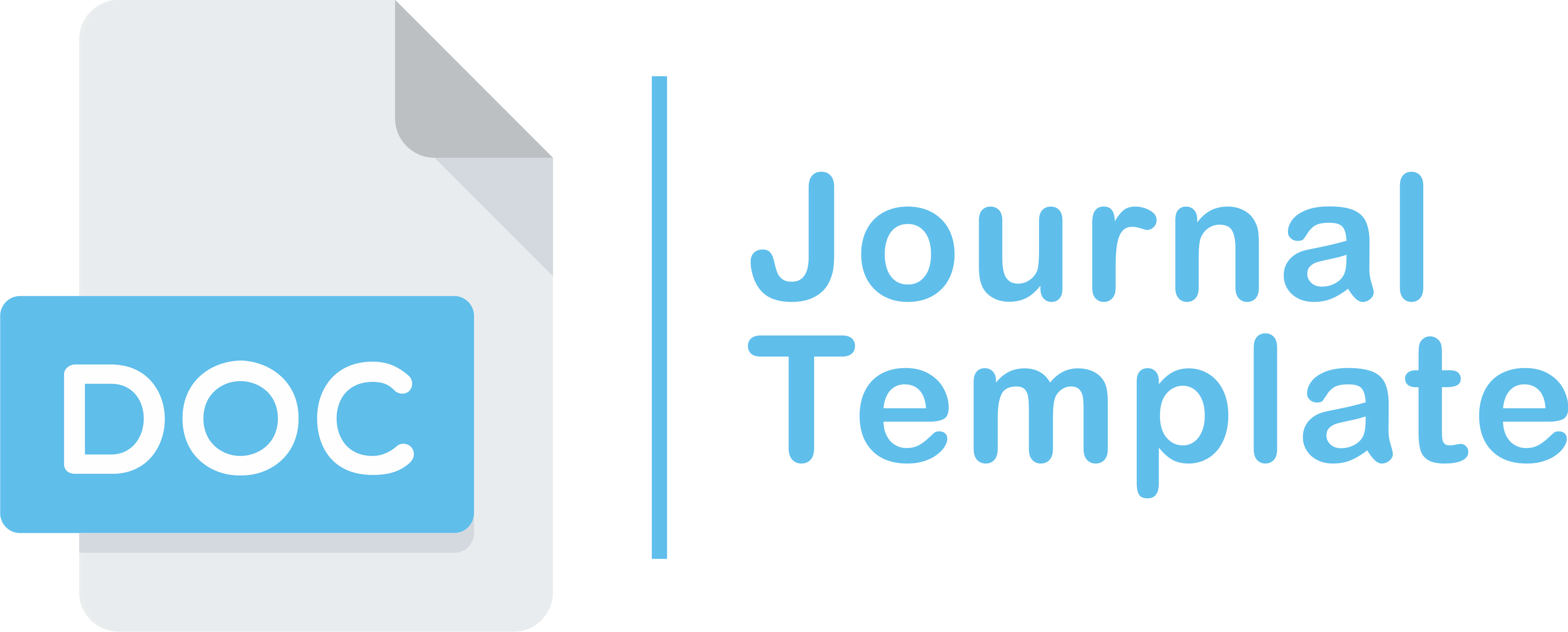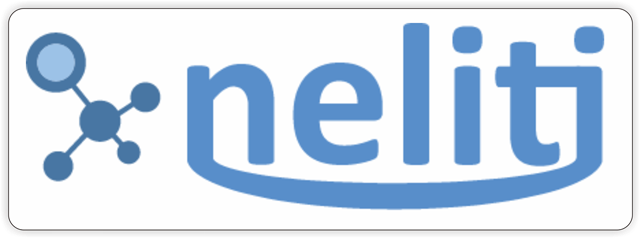The Role of Stakeholders in Supporting the Implementation of Nagari Tageh in Tanah Datar Regency
DOI:
https://doi.org/10.69989/vzd6sn73Keywords:
Nagari Tageh, Nagari Government, Role of StakeholdersAbstract
Nagari Tageh is a program implemented by the government to strengthen the community based on the community itself. Nagari Tageh is a reflection of the national program known as the Disaster Resilient Village. In West Sumatra, Nagari Tageh was initiated by the Regional Police (POLDA), and at the district level, it was carried out by the local police (POLRES). In Tanah Datar Regency, Nagari Tageh has been socialized since 2018, but there is still no Nagari that has been able to implement this program comprehensively. The involvement of other stakeholders that should support this program has also not been seen, as if the POLRES is working alone without cross-sectoral support. However, because the Nagari Tageh program is a strategic program that directly involves the Nagari community, contributions from other relevant agencies are urgently needed. This study aims to examine the roles that can be carried out by government institutions as stakeholders in the Nagari Tageh program so that it can be implemented more comprehensively in the future. This research uses a qualitative method with a descriptive approach. Data were collected through interviews with key informants from the Tanah Datar POLRES and several other stakeholders related to the Nagari Tageh program. The results show that stakeholders other than POLRES and the Nagari government actually have a commitment to support the implementation of Nagari Tageh, but there is no formal coordination or clear role division. Each institution has a different potential contribution according to its authority, but there is no binding collaboration mechanism. A coordinated structure between institutions is needed to ensure that this program can run in an integrated and sustainable manner.
Downloads
References
Admiral Musa, J., Nrangwesthi, W., Najib, A., Andi Ahmad, A., Hendro, P., Ifad, F., Khairunnisa, A., Tego, S., Rizkia M, R., & I Dewa Ketut K, W. (2020). Implementasi Program Desa Tangguh Bencana di Desa. Swabumi, 8(1), 1–10.
Akmal, A. D., & Nurhabibi, P. (2020). Academic Manuscript in the Formulation of Nagari Rules. 125(Icpapg 2019), 297–303. https://doi.org/10.2991/aebmr.k.200305.211
Ansell, Chris and Gash, A. (2008). Collaborative Governance in Theory and Practice , Chris Ansell and Alison Gash. Journal of Public Administration Research and Theory, 18(4), 1–12.
Haas, P. M. (1992). Introduction: Epistemic communities and international policy coordination. International Organization, 46(1), 1–35. https://doi.org/10.1017/S0020818300001442
Hafel, M., Jamil, J., Umasugi, M., & Anfas. (2021). Collaborative Governance between Stakeholders in Local Resource Management in North Maluku. Journal of Hunan University …, 48(April), 82–87. http://jonuns.com/index.php/journal/article/view/541
Hafni Sahir, S. (n.d.). Metodologi Penelitian. www.penerbitbukumurah.com
Herrera-Medina, E., & Riera Font, A. (2023). A Game Theoretic Approach to Collaboration in Policy Coordination. Economies, 11(10). https://doi.org/10.3390/economies11100251
Kesehatan, J., Fakultas, M., Masyarakat, K., & Andalas, U. (2021). SALIMPAUNG KABUPATEN TANAH DATAR YANG RESPONSIF Jurusan Sosiologi Fakultas Ilmu Sosial dan Ilmu Politik Universitas Andalas Development Planning of Nagari Sumaniak , Salimpaung District , Tanah Datar Regency that is Responsive to The Impact of The Covid-1. 4(1), 20–27.
Moleong, L. J. (2019). Moleong, ” Metodologi Penelitian Kualitatif Edisi Revisi”. Bandung : Remaja Rosdakarya. PT. Remaja Rosda Karya.
Noviarti, Reniwati, A. (2019). Warta Pengabdian Andalas. Warta Pengabdian Andalas, 26(1), 16–22.
Oktari, R. S. (2019). Peningkatan Kapasitas Desa Tangguh Bencana. Jurnal Pengabdian Kepada Masyarakat (Indonesian Journal of Community Engagement), 4(2), 189. https://doi.org/10.22146/jpkm.29960
Rizzo, A., Cappellano, F., Pierantoni, I., & Sargolini, M. (2022). Do natural disasters accelerate sustainability transitions? Insights from the Central Italy earthquake. European Planning Studies, 30(11), 2224–2244. https://doi.org/10.1080/09654313.2021.2022104
Sugiyono. (2013). Metode Penelitian Pendidikan Pendekatan Kuantitaif, Kualitatif, dan R&DSugiyono. 2013. “Metode Penelitian Pendidikan Pendekatan Kuantitaif, Kualitatif, dan R&D.” Metode Penelitian Pendidikan Pendekatan Kuantitaif, Kualitatif, dan R&D. https://doi.org/10.1. Metode Penelitian Pendidikan Pendekatan Kuantitaif, Kualitatif, Dan R&D.
Sutopo, H. B. (2006). Metodologi Penelitian Kualitatif; Dasar Teori dan Penerapannya dalarn Penelitian. In Edisi-2. Universitas Sebelas Maret, Surakarta.
Thahir, B. (2022). Is There Any Collaborative Governance on Post-disaster Social Policy in Banten Province? Jurnal Bina Praja, 14(2), 329–338. https://doi.org/10.21787/jbp.14.2022.329-338
Downloads
Published
Issue
Section
License
Copyright (c) 2025 Artha Dini Akmal, Yuliarti Yuliarti, Karjuni Dt Maani, Iip Permana, Agri Americo Agamuddin (Author)

This work is licensed under a Creative Commons Attribution-ShareAlike 4.0 International License.
Copyright Notice
An author who publishes in the journal "Jurnal Ilmiah Ekotrans & Erudisi" agrees to the following terms:
Author retains the copyright and grants the journal the right of first publication of the work simultaneously licensed under the Creative Commons Attribution-ShareAlike 4.0 License that allows others to share the work with an acknowledgement of the work's authorship and initial publication in this journal
Author is able to enter into separate, additional contractual arrangements for the non-exclusive distribution of the journal's published version of the work (e.g., post it to an institutional repository or publish it in a book) with the acknowledgement of its initial publication in this journal.
Author is permitted and encouraged to post his/her work online (e.g., in institutional repositories or on their website) prior to and during the submission process, as it can lead to productive exchanges, as well as earlier and greater citation of the published work (See The Effect of Open Access).
All materials in this site are protected by the law. It is prohibited to quote a part of or all of this website contents for commercial purposes without the permission or consent of the editors.
If anyone finds one article or more in this journal violate or potentially violate one’s copyrights, please report to us through e-mail of Principle Contact.
Legal-formal aspects of accessing any information and manuscript in this journal website refer to the provision of license Creative Commons Attribution-Share Alike (CC BY-SA). Read more about the Creative Commons Attribution-ShareAlike 4.0 Licence here: https://creativecommons.org/licenses/by-sa/4.0/.
All information available in 'Jurnal Ilmiah Ekotrans & Erudisi' is academic in nature. 'Jurnal Ilmiah Ekotrans & Erudisi' is not responsible for loss due to the abuse of information in the website.
Information
Notice about change in the copyright policy of the journal 'Jurnal Ilmiah Ekotrans & Erudisi' : "From Volume 1, Nomor 1 onwards the copyright of the article published in the journal 'Jurnal Ilmiah Ekotrans & Erudisi' will be retained by the author"
Privacy Statement
The names and email addresses entered in this journal site will be used exclusively for the stated purposes of this journal and will not be made available for any other purpose or to any other party.

